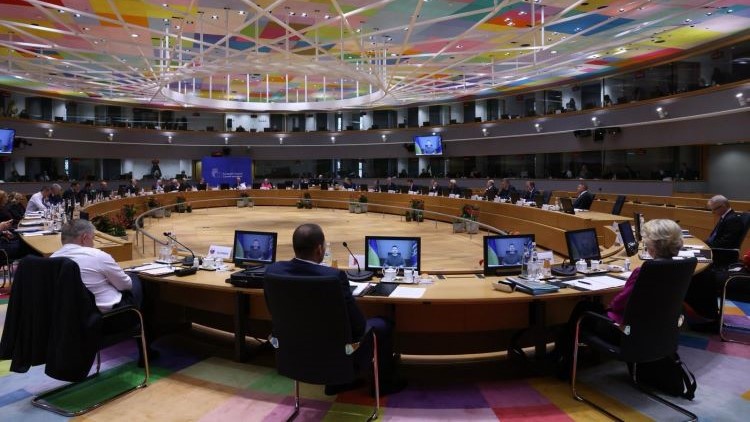Aquí Europa
The Prime Minister of Hungary, Viktor Orbán, has finally accepted the review of the Multiannual Financial Framework (MFF), on which aid of 50 billion euros to Ukraine depends, after vetoing it at the European Council in December.
Although everything indicated that this Thursday’s Summit could be extended, shortly after announcing the start of the European Council, the President of the Council, Charles Michel, reported through social networks the agreement reached by the Twenty-seven on aid of 50 billion euros to Ukraine, which “ensures firm, predictable and long-term financing for Ukraine.” «The EU is assuming leadership and responsibility in supporting Ukraine; “We know what is at stake,” he added.
The President of Ukraine, Volodymyr Zelensky, has celebrated the agreement and has highlighted that “it is very important that the decision was made by the 27 leaders, which once again demonstrates the strong unity of the EU,” as he declared through his account on the social network.
Subsequently, the Ukrainian president addressed European leaders telematically, to whom he noted that, “with today’s big decisions, Europe is sending a signal across the Atlantic and to the entire world that the rules-based international order will withstand the challenges.” ». Zelensky added that “Europe sets the tone for global affairs through its unity.”
For his part, the President of the Government, Pedro Sánchez, declared in the press conference after the Council that the agreement is “good news for Spain, for Europe and for the Ukrainian people and the citizens of the free world in general.” The Ukraine Mechanism, Sánchez declared, “will serve to combat Putin’s authoritarianism and protect our democracies.”
Furthermore, he continued, European leaders have shown their intention to continue providing “timely, predictable and sustainable” military support to Ukraine “for as long as necessary.” This aid will be channeled through the European Peace Support Fund and the Military Assistance Mission of the European Union, as well as through the strengthening of the European defense industry. “We are going to continue providing Ukraine with the necessary material to defend its territory, its institutions and its population against Russian aggression,” said the President of the Government.
Following the Council’s agreement, the sum of global resources made available by the Ukraine Facility for the period 2024-2027 will not exceed €50 billion, of which €33 billion will be allocated in the form of loans and €17 billion euros in the form of non-refundable aid.
As agreed, a precondition for support for Ukraine under the Mechanism will be that the country continues to maintain and respect effective democratic mechanisms, including a multi-party parliamentary system and the rule of law, and ensure respect for human rights. When implementing the Facility, the Commission and Ukraine shall take all appropriate measures to protect the financial interests of the Union, in particular as regards the prevention, detection and correction of fraud, corruption, conflicts of interest and irregularities.
Furthermore, the European Council will hold an annual debate on the implementation of the Mechanism with a view to providing guidance and, if necessary, within two years, the European Council will invite the Commission to submit a proposal for a review in the context of the new MFF.
At its next session in March 2024, the European Council will return to the issue of security and defence, including the need for Europe to increase its global defense preparedness and continue to strengthen its defense technological and industrial base, with a view to to agree new measures to make the European defense industry more resilient, innovative and competitive. The leaders have added a line in the draft conclusions recalling their December 2020 conclusions on the application of the conditionality mechanism.







